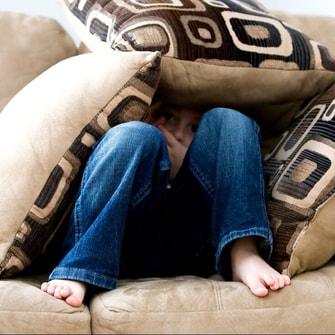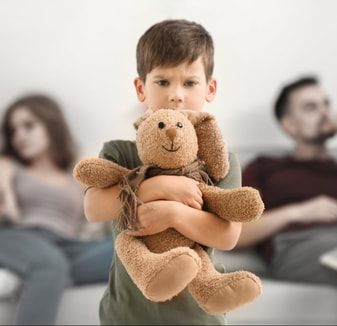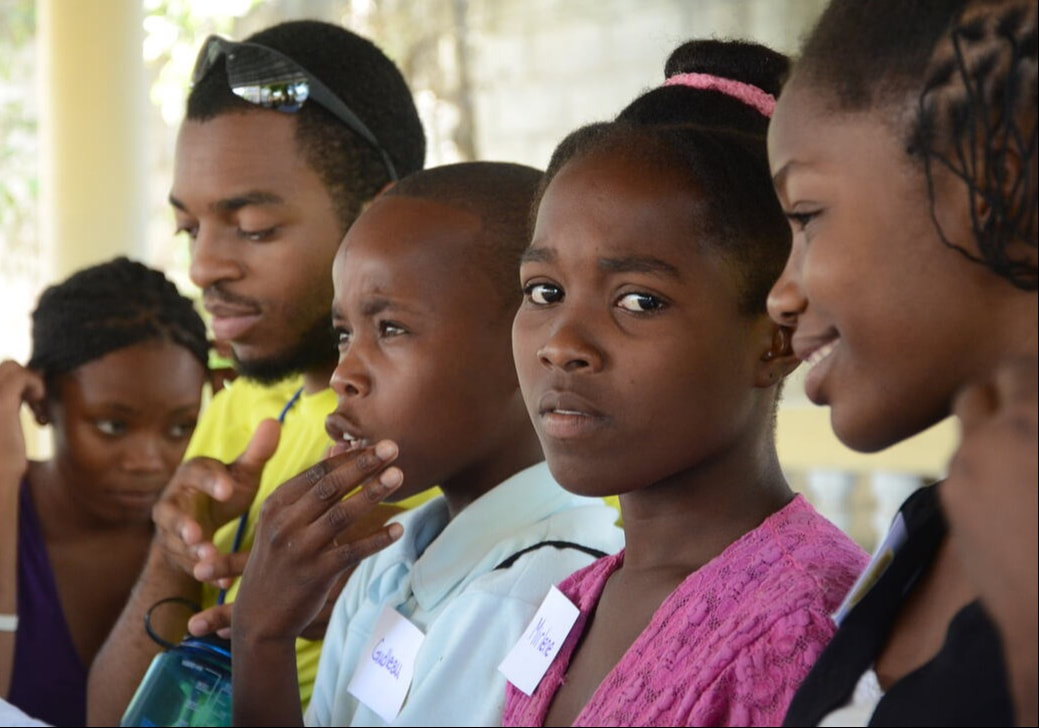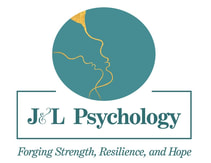Specialties: Child, Parent & Family Therapy
Therapy for children and teensNothing is more difficult for a parent than knowing your child is struggling. Often this is when you most need guidance on how to best respond to and support your child. J&L Psychology offers therapy for children and teens, support for parents, and services for the entire family.
It is widely acknowledged that early intervention for children and teens experiencing anxiety, depression, or behavioral challenges can have long-term impact. By learning tools to express emotions and manage behaviors, kids are better able to handle daily challenges, get along with peers, listen and follow rules, succeed in school, and feel more confident. We treat children as young as 2, customizing treatment approaches that are adapted to age, developmental level, and interests. For young children, we may use play therapy to get to know them and understand their feelings. Engaging a teenage patient might include video games and role playing. If your child is an artist, it is likely that therapy will involve a paintbrush and sketchbook. How we approach children & teensWe can help children or adolescents understand their feelings, find ways to express themselves, and handle frustrations. Together we will make sense of their experiences at school, with peers, and at home. They'll learn tools to cope, communicate, and thrive.
Treatment is considered a collaborative process. We regularly check in with parents to assess how their child is doing at home and at school. When appropriate, we will reach out to school personnel and other health care providers to gain a comprehensive understanding of how a child is doing in different settings. Our child therapists are trained in Cognitive Behavioral Therapy (CBT), an approach to treatment that helps children understand their emotions and put words to their experiences. They learn coping strategies to deal with their daily stresses and techniques for how to tolerate frustrations and anxieties. Play therapy is designed for younger children experiencing behavioral and/or emotional difficulties. J&L clinicians also draw from Parent-Child Interaction Therapy, which incorporates play therapy skills and behavior management tools to help parents as they interact with their children. Finally, we understand how important it is for parents to be involved in helping their children overcome challenges and reach their potential. Parents of younger children always are included in the treatment planning and process. With older teens, we often meet separately to give them a private, safe space in which to share their concerns while keeping parents informed of treatment goals and progress. Parents are offered guidance in how to connect, communicate, and set boundaries with their child to improve treatment outcomes. Parent supportWe all try to do our best, but sometimes we do not know what to say or do. You probably have tried so hard to help your child, and it is upsetting to see your child's anxieties and struggles continue or even worsen.
Regardless of whether we are treating your child, J&L providers also offer sessions for parents so you can openly share your frustrations or concerns and work together to figure out best parenting strategies to help your child. As we learn about what is happening, and understand your perspective and, when relevant, the perspectives of other family members, we will work with you to address your concerns. We also offer guidance on how to respond to and communicate with your child. For parents of younger children, we address issues such as discipline, sleep, tantrums, and peer behavior. Parents of older children often have concerns about their child's transition to independence, boundary-setting, attitudes, and relationships. We take into account your family situation, cultural background, and your unique concerns. We can help you figure out ways to approach parenting challenges and share in celebrating successes. We also address your parental stresses, frustrations, or guilt that may interfere with having the relationship you want with your child. Families come to us with a diverse set of issues, however, one theme is a constant: Families long for closeness. They seek treatment because they want more connection and less conflict. They want a home with less tension and more peace. They want to be happier together.
One family member or several may be struggling with anger, resentment, anxiety, depression, or other stresses. We are sensitive to the experiences of each family member and work to make it safe to have honest conversations about individual needs and collective support. The process could include referring family members for individual therapy, which J&L Psychology also can provide. We often learn about the patterns of conflict that keep families stuck. Observing patterns is the first step to changing them and developing different ways of relating to each other. We also understand that families often come to us at a particular time of distress and may bring with them a long history of unresolved conflicts and personal emotional pain. We work to understand these experiences, as well, and begin the process of repair. The pain of the past may be informing the present, but it does not have to determine the future. Families can get unstuck. Families can heal. J&L Psychology will help you and your family members learn new ways of getting along together. It is possible to talk more respectfully to each other, to voice your concerns openly, to be heard and understood. Spending more time together, and with less conflict, opens the door to greater emotional safety and deeper connections as a family unit. The healthier bonds you forge together remain with you long after treatment has ended. Learn more about Family Therapy Treatments used in child & family therapyParent-child interaction therapy
Parent-Child Interaction Therapy (PCIT) is a short-term, specialized behavior management program designed for young children experiencing behavioral and/or emotional difficulties and their caregivers.
PCIT involves direct live coaching of parent and child together. The therapist guides caregivers in specific play therapy techniques and discipline skills. PCIT focuses on improving positive child behaviors through a strong parent-child relationship. Research has found that successful completion of PCIT decreases parenting stress and reduces child behavior problems in the home, at school, and in public settings. Advantages of live coaching : • Skills are acquired rapidly because caregivers learn by doing • The therapist supports caregivers as they learn the skills • Caregivers quickly become confident and proficient in skills with the child • The therapist provides immediate feedback to caregivers PCIT benefits children ages 2-7 with the following problems: • Refusing/defying adult requests • Losing their temper easily • Stealing things • Destroying property • Starting fights/hurting others • Having difficulty staying seated • Having problems playing quietly • Having trouble taking turns • History of abuse • Adjustment difficulties PCIT also benefits: • Caregivers • Parents; foster parents • Adoptive parents; guardians play therapy
A primary task of childhood is to play. Play is the language of childhood. In a therapeutic setting, play can be used to understand a child’s thoughts, feelings, and behaviors. It also provides support, tools for communication, and strategies for coping. Play therapy is tailored to each child and family. From Play-Doh, to cars, to crayons, to dolls, play therapy can integrate any childhood favorites into the therapeutic process. When children are having fun, and are feeling safe and understood, they tend to take more emotional risks and express their unique understanding of the world. They also may be more open to sharing the challenges they are experiencing, which creates avenues for healing.
family systems therapy
Family Systems Therapy is a therapy approach that treats the family unit as the patient. Each family member has the opportunity to be involved and help to resolve issues in the context of this family-based work. Family Systems Therapy appreciates the unique and complex interactions among family members. Individuals are encouraged to express their thoughts and feelings, identify patterns of behaviors or reactions, and work with other family members to resolve conflicts. At times, subsets of of the family (e.g. parents only or siblings only) may work together to address concerns. This approach can address issues such as depression, anxiety, personality disorders, and trauma that may be affecting one or more family members and therefore the entire dynamic.
COGNITIVE BEHAVIORAL THERAPY (CBT)
CBT focuses on the relationship between your thoughts, feelings, and behaviors. Shifting your thoughts and behaviors can lead to meaningful change in emotions that might be blocking you from achieving your goals.
CBT is an active treatment in which you work with your therapist to achieve change. This approach often includes structured exercises and assignments between sessions. Your therapist will help you: a) challenge unhelpful thoughts that hold you back; b) start engaging in activities that matter to you; and c) approach important things you have been avoiding in life. CBT treatments also may incorporate mindfulness training to help you acknowledge the present moment. You may also learn skills to help you relax your mind and body, tolerate distress, and manage painful feelings. Vertical Divider
|
When to seek help
|




